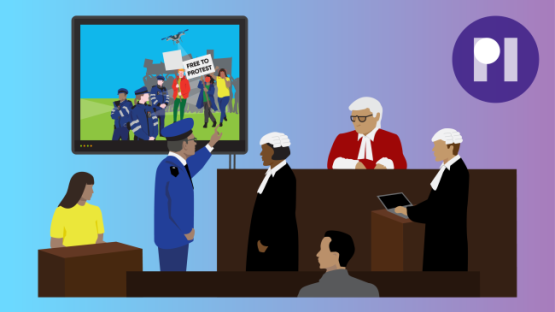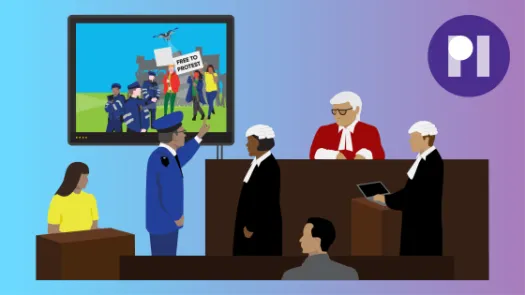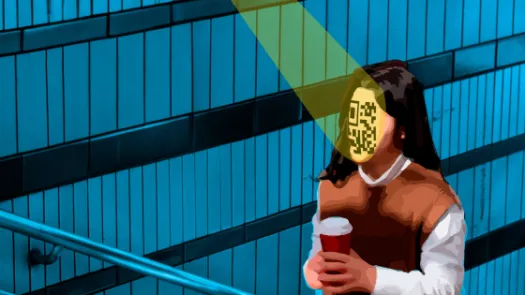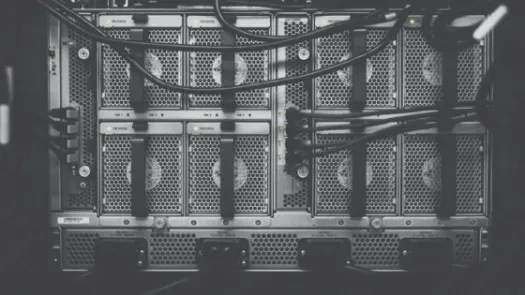
Protest surveillance into court
PI’s report on the legal implications of unrestrained protest surveillance for the fair trial rights of activists, human rights defenders and protesters
- Information gathered through the surveillance of protests is being used as evidence in criminal proceedings against activists, protesters, and human rights defenders in jurisdictions across Europe, Asia, Africa, and the Americas.
- The evidence gathering, which often takes place contrary to the right to privacy, happens in secret and without transparency as to how information has been collected, with whom it has been shared, and who has accessed it.
- As a consequence of deploying protest surveillance without reasonable suspicion and other safeguards required under the right to privacy, the evidence collected is often presented in misleading ways and is prone to deletion (including exculpatory information) and fabrication.
- Unlawful evidence gathering by law enforcement and judicial systems is preventing defendants from being able to adequately comment on and challenge information used against them in criminal proceedings. This is incompatible with the right to be able to participate effectively in the proceedings, which is central to the right to fair trial.

With this report, we shed light on the due process implications of the blanket and indiscriminate surveillance of protesters, activists, and human rights defenders participating in protests. We demonstrate that information gathered through the surveillance of protests is being used in criminal proceedings against activists, protesters, and human rights defenders. We also also show that when this information is being admitted as evidence in criminal proceedings it undermines the right to fair trial. In particular, information obtained in breach of the right to privacy of activists, protesters, and human rights defenders is processed opaquely without clear transparency as to how it has been collected, with whom it has been shared, and who as accessed it. This information is both being widely used during the trial phase, but also ancillary processes such as bail hearings.
As a consequence of deploying protest surveillance without reasonable suspicion and other safeguards under the right to privacy, the evidence collected is often presented in misleading ways and is prone to deletion (including exculpatory information) and fabrication. These harms are exacerbated by the role of other actors, such as companies, in the management and presentation of evidence obtained through surveillance; their role further blurs chain of custody and obfuscates what happens to the information once collected.
The result is that the accuracy, integrity, and credibility of the evidence cannot be adequately assessed by the defence. This in turn undermines the ability to participate effectively in the proceedings, which is central to the right to a fair trial. We found evidence that the fair trial rights of activists, protesters and human rights defenders were breached in this way in jurisdictions across Europe, Asia Africa and the Americas. Core to the widespread nature of these findings was our methodology. This involved both examining judgments and court records, as well as undertaking semi-structured interviews with activists, lawyers, and civil society organisations with direct experience of challenging surveillance evidence used in proceedings across a number of the jurisdictions we examined.
The widely divergent contexts we looked at range from rule of law democracies to authoritarian polities. Notwithstanding the differing governing contexts and legal frameworks authorising surveillance and its onward uses in criminal proceedings, the harmful practices we have identified are criminalising the right to protest and freedom of expression and dissent more broadly. The report therefore proposes a number of urgent fair trial safeguards. These safeguards seek to prevent the use of unlawful evidence in criminal proceedings against activists, protesters and human rights defenders. If implemented they would provide defendants with mechanisms to ensure transparency of evidence gathering without which protesters, activists and human rights defenders are unable to adequately challenge and comment on evidence used against them.



